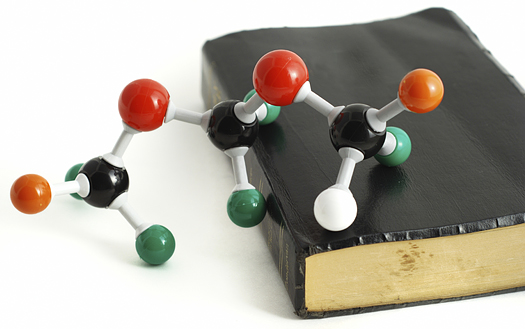
In reality, true religion cannot become involved in any controversy with science; it is in no way concerned with material things. Religion is simply indifferent to, but sympathetic with, science, while it supremely concerns itself with the scientist. ~ The Urantia Book, (195:6.2)
Science is man's attempted study of his physical environment, the world of energy-matter; religion is man's experience with the cosmos of spirit values; philosophy has been developed by man's mind effort to organize and correlate the findings of these widely separated concepts into something like a reasonable and unified attitude toward the cosmos. ~ The Urantia Book, (103:6.9)
In science, God is the First Cause; in religion, the universal and loving Father; in philosophy, the one being who exists by himself, not dependent on any other being for existence but beneficently conferring reality of existence on all things and upon all other beings. But it requires revelation to show that the First Cause of science and the self-existent Unity of philosophy are the God of religion, full of mercy and goodness and pledged to effect the eternal survival of his children on earth. ~ The Urantia Book, (4:4.7)
Many features of human life afford abundant evidence that the phenomenon of mortal existence was intelligently planned, that organic evolution is not a mere cosmic accident. When a living cell is injured, it possesses the ability to elaborate certain chemical substances which are empowered so to stimulate and activate the neighboring normal cells that they immediately begin the secretion of certain substances which facilitate healing processes in the wound; and at the same time these normal and uninjured cells begin to proliferate—they actually start to work creating new cells to replace any fellow cells which may have been destroyed by the accident. ~ The Urantia Book, (65:4.3)
Mathematics, material science, is indispensable to the intelligent discussion of the material aspects of the universe, but such knowledge is not necessarily a part of the higher realization of truth or of the personal appreciation of spiritual realities. Not only in the realms of life but even in the world of physical energy, the sum of two or more things is very often something more than, or something different from, the predictable additive consequences of such unions. The entire science of mathematics, the whole domain of philosophy, the highest physics or chemistry, could not predict or know that the union of two gaseous hydrogen atoms with one gaseous oxygen atom would result in a new and qualitatively superadditive substance—liquid water. The understanding knowledge of this one physiochemical phenomenon should have prevented the development of materialistic philosophy and mechanistic cosmology. ~ The Urantia Book, (12:9.3)
Science and Religion - Not Mutually Exclusive
It is not necessary to sacrifice faith in God in order to enjoy the blessings of the modern secularistic revolt: tolerance, social service, democratic government, and civil liberties. It was not necessary for the secularists to antagonize true religion in order to promote science and to advance education.
But secularism is not the sole parent of all these recent gains in the enlargement of living. Behind the gains of the twentieth century are not only science and secularism but also the unrecognized and unacknowledged spiritual workings of the life and teaching of Jesus of Nazareth. ~ The Urantia Book, (195:8.8)
In religion, Jesus advocated and followed the method of experience, even as modern science pursues the technique of experiment. We find God through the leadings of spiritual insight, but we approach this insight of the soul through the love of the beautiful, the pursuit of truth, loyalty to duty, and the worship of divine goodness. But of all these values, love is the true guide to real insight. ~ The Urantia Book, (195:5.14)
Religions have long endured without philosophical support, but few philosophies, as such, have long persisted without some identification with religion. Philosophy is to religion as conception is to action. But the ideal human estate is that in which philosophy, religion, and science are welded into a meaningful unity by the conjoined action of wisdom, faith, and experience. ~ The Urantia Book, (98:2.12)
Science is the source of facts, and mind cannot operate without facts. They are the building blocks in the construction of wisdom which are cemented together by life experience. Man can find the love of God without facts, and man can discover the laws of God without love; but man can never begin to appreciate the infinite symmetry, the supernal harmony, the exquisite repleteness of the all-inclusive nature of the First Source and Center until he has found divine law and divine love and has experientially unified these in his own evolving cosmic philosophy. ~ The Urantia Book, (111:6.6)
Throughout the earlier ages of any world, competition is essential to progressive civilization. As the evolution of man progresses, co-operation becomes increasingly effective. In advanced civilizations co-operation is more efficient than competition. Early man is stimulated by competition. Early evolution is characterized by the survival of the biologically fit, but later civilizations are the better promoted by intelligent co-operation, understanding fraternity, and spiritual brotherhood. ~ The Urantia Book, (71:5.3)
Be not discouraged; human evolution is still in progress, and the revelation of God to the world, in and through Jesus, shall not fail. ~ The Urantia Book, (196:3.33)


